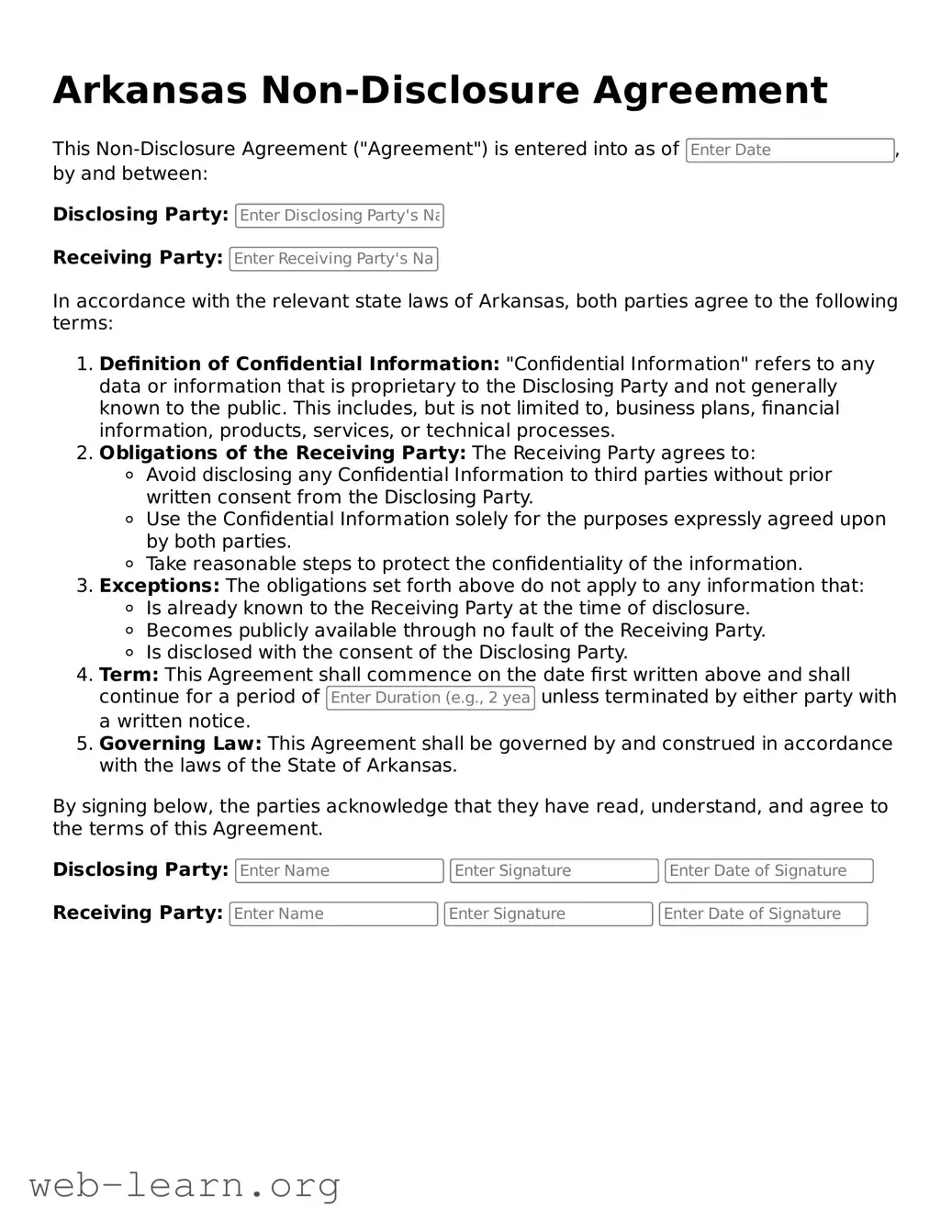In today's competitive landscape, the protection of sensitive information is paramount, and this is where the Arkansas Non-disclosure Agreement (NDA) form plays a crucial role. An NDA is a legal tool that establishes a confidential relationship between parties, ensuring that any proprietary information shared is safeguarded from unauthorized disclosure. Typically, this form is utilized by businesses, organizations, or individuals who wish to share information, such as trade secrets, financial data, or innovative ideas, without the risk of them being exposed to competitors or the public. The NDA outlines the obligations of the parties involved, defining what constitutes confidential information and stipulating the duration of the confidentiality obligation. It also addresses exceptions to confidentiality, ensuring transparency and understanding. By effectively leveraging this form, parties can foster trust and encourage open communication, ultimately paving the way for collaboration and growth, all while protecting their valuable intellectual property. With a well-structured Arkansas NDA, individuals and businesses can navigate partnerships with confidence, knowing that their proprietary information remains secure.
